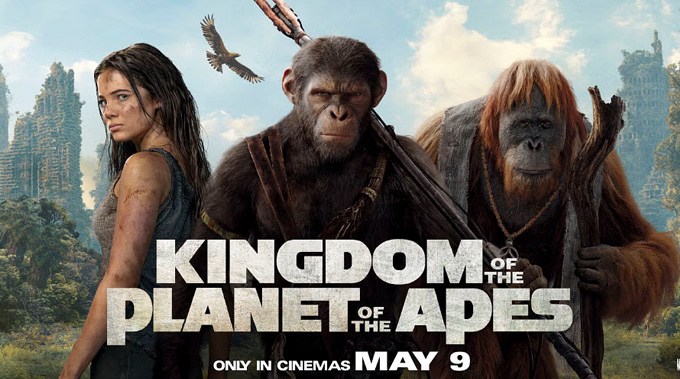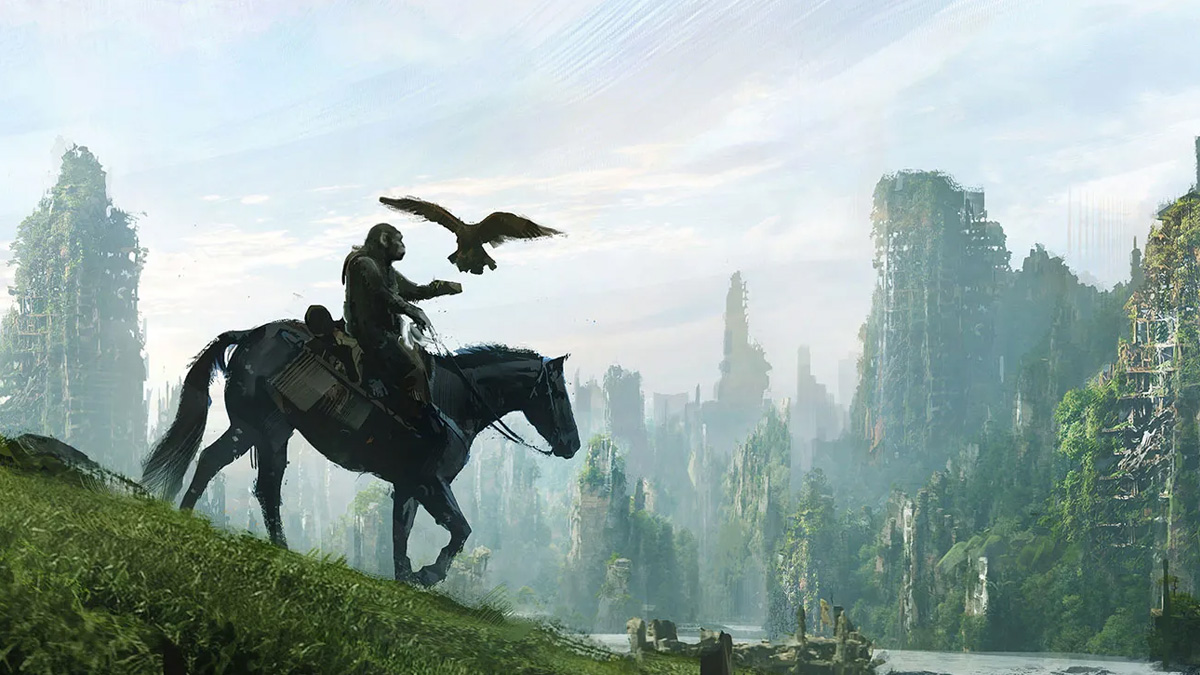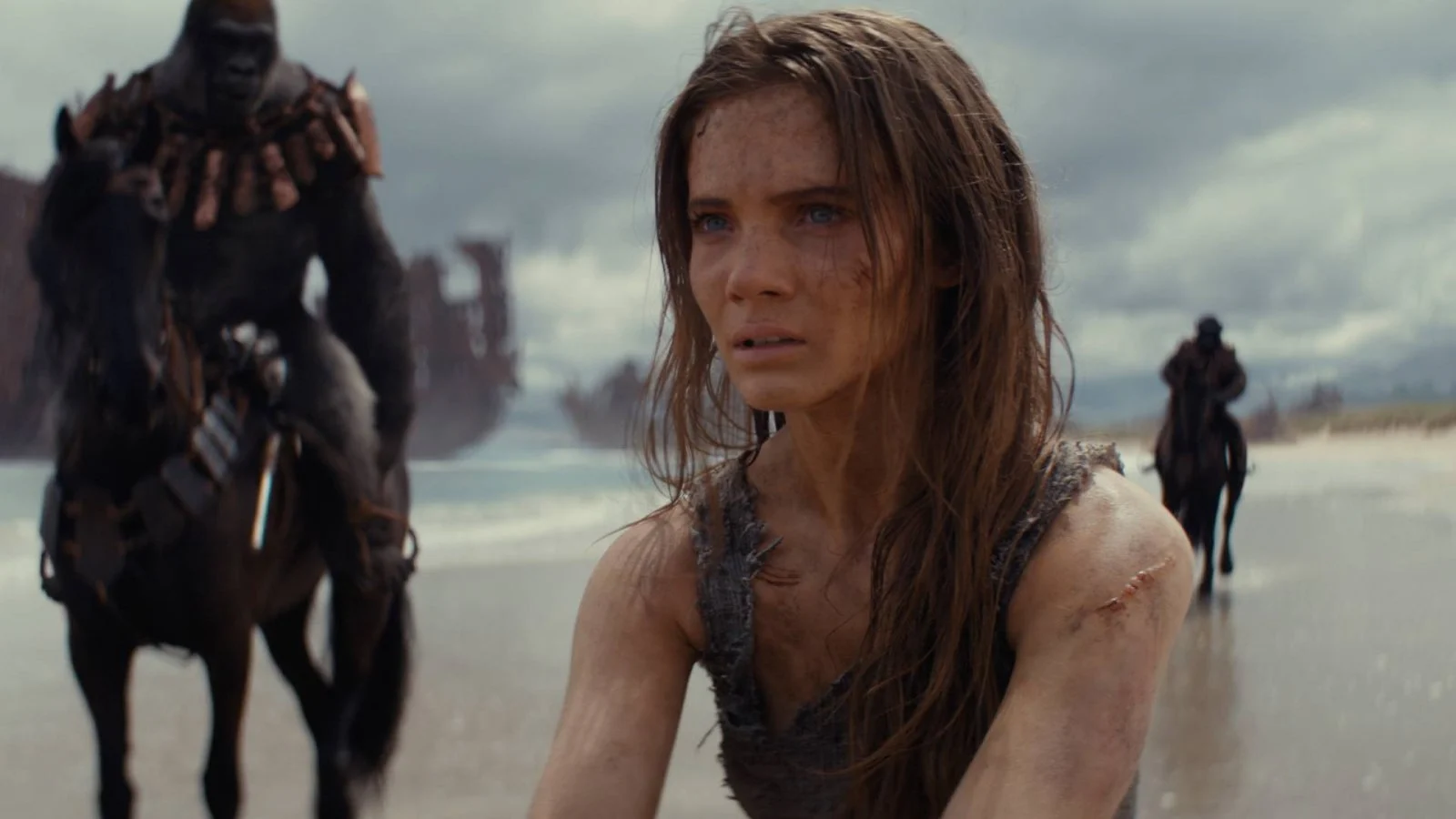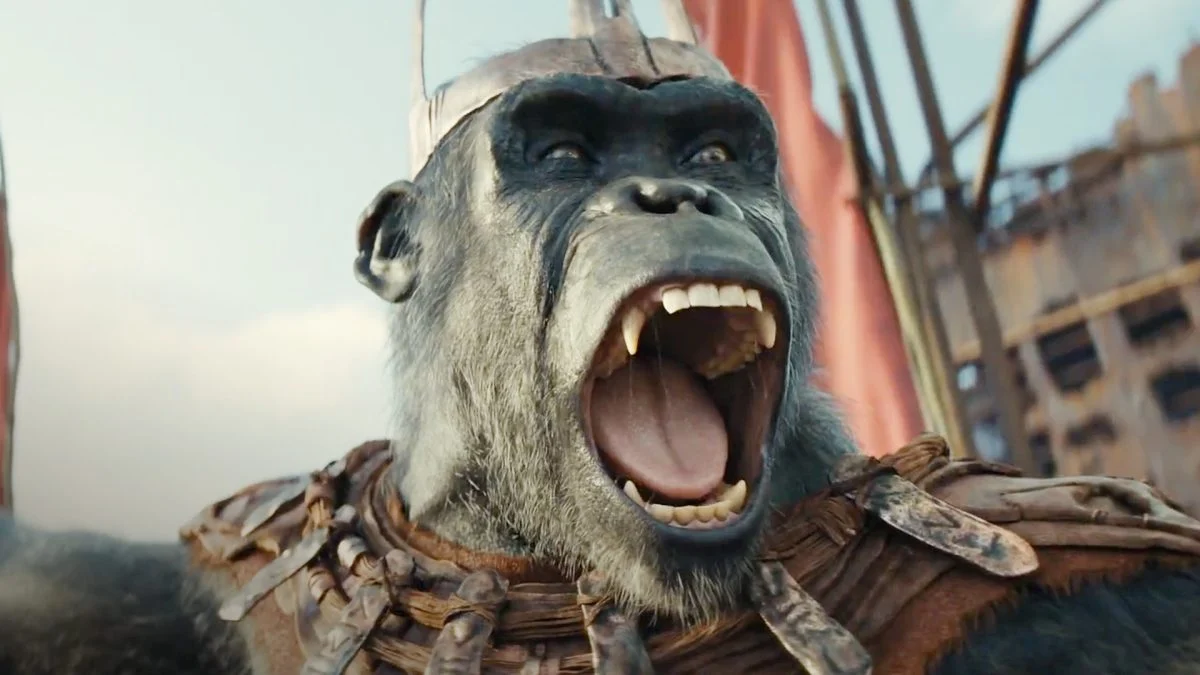[Review] Kingdom of the Planet of the Apes 2024: A New Chapter in the Epic Franchise

Kingdom of the Planet of the Apes After a seven-year hiatus following the release of ‘War for the Planet of the Apes’ in 2017, the ‘Planet of the Apes’ franchise returns with ‘Kingdom of the Planet of the Apes 2024’. This latest installment, celebrating the 56th anniversary since the original 1968 film, continues the sci-fi political drama narrative that has captivated audiences for decades. The film itself is filled with intense action, while its off-screen premiere was marked by social media controversies involving inappropriate jokes, showcasing drama both on and off the screen.

Wes Ball’s Vision and Execution
Director Wes Ball, known for ‘The Maze Runner’ series, suggested that this film would resemble an ‘Apocalypto’ with apes. However, upon viewing, ‘Kingdom of the Planet of the Apes’ aligns more closely with ‘Avatar’, particularly in its depiction of the apes forming distinct tribes with unique rituals and beliefs. Despite this ambition, the film falls short in achieving the thematic depth of either ‘Apocalypto’ or ‘Avatar’, primarily due to its screenplay.
Character Development and Storyline
The character development is particularly lackluster. The film starts promisingly by showcasing Noah’s impressive climbing skills and his bond with two close ape friends, setting up an intriguing new narrative. However, after the initial act, the story becomes convoluted, with key characters fading into the background and only reappearing towards the end. This inconsistent character focus detracts from the overall narrative coherence.
One redeeming element is the character Rakha, who serves as a fan of Caesar, connecting this film to the previous trilogy. However, the human character Mae, who inexplicably gains the ability to speak and becomes increasingly important, is underdeveloped. Her significance in linking the new narrative to the original 1968 film is overshadowed by her inconsistent screen presence, particularly in the first half of the movie. By the second half, she nearly overshadows Noah, the intended protagonist, diluting the impact of his storyline.

Conflict and Resolution
The primary conflict between Noah and the antagonist Proximus is inadequately explored. Proximus, as a villain, remains one-dimensional and lacks significant development. Conversely, Noah, who is supposed to be the heir to Caesar’s legacy and the new face of the franchise, has his backstory and leadership role insufficiently explored. Even a crucial ritual involving an eagle’s egg, meant to symbolize unity, is abruptly cut short to make way for visual effects-heavy action scenes, catering to modern audiences’ preference for spectacle over dialogue.
Real-World Reflections
Despite its flaws, ‘Kingdom of the Planet of the Apes’ continues to reflect real-world conflicts, mirroring the historical and ongoing strife between Israel and Palestine. Proximus uses Caesar’s legacy as a pretext for war, aiming to dominate the apes and eradicate humanity, paralleling real-world leaders’ manipulation of beliefs and history to justify territorial claims. This theme resonates with the franchise’s history of political commentary, from the Cold War allegories of the 1968 original to the social uprising themes of the 2011 reboot, ‘Rise of the Planet of the Apes’.
The Power of Communication
Moreover, the film subtly addresses the power of communication. Mae’s refusal to speak as a form of self-preservation and her ultimate role in the narrative underscore this theme. Proximus also understands the power of narrative, twisting Caesar’s story to rally the apes against humans. The subplot of Noah learning to communicate with an eagle, echoing his late father’s skills, adds another layer to this theme.

Off-Screen Controversy
The off-screen controversy at the film’s gala premiere on May 8, 2024, highlighted the impact of miscommunication. A host made inappropriate jokes involving a female cast member and an influencer, drawing backlash and reflecting the delicate nature of humor in today’s social climate. This incident underscores the film’s message about the significance and sensitivity of communication.
Conclusion
In conclusion, while ‘Kingdom of the Planet of the Apes’ struggles with character development and narrative consistency, it remains a noteworthy addition to the franchise. Its exploration of real-world conflicts and the power of communication, combined with stunning visual effects, offers a compelling, if imperfect, continuation of the apes’ saga.
Kingdom of the Planet of the Apes | Official Trailer
Movie review 2024 : Movie review 2024
Recent review : Rebel Moon Part Two

